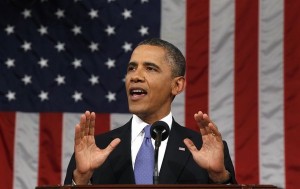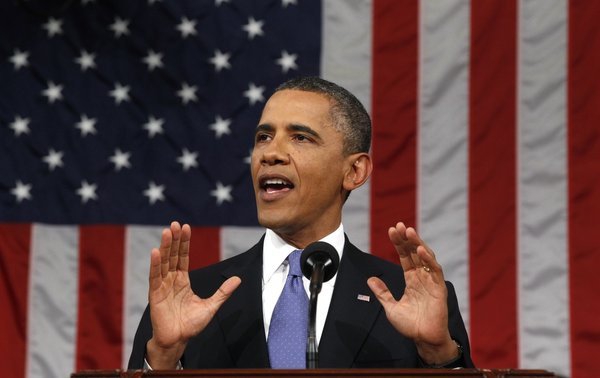
A full-blown U.S. invasion, occupation and disarmament of Iran would cost the global economy almost $2 trillion in the first three months alone, according to a special report�released�by the DC-based Federation of American Scientists (FAS).
The decision to invade and disarm Iran means Washington would impose a naval blockade and no-fly zone against the Islamic Republic, and would require "large numbers" of American troops on the ground inside Iran in order to systematically destroy the country's military bases and nuclear power installations, according to the report.
The special FAS study, entitled "Sanctions, Military Strikes, Other Potential Actions Against Iran," aggregates the findings of nine bipartisan "subject matter experts" affiliated with a vast range of entities such as private consulting firms, investment banks, think-tanks and universities, to present the net global economic cost (or benefit) of six hypothetical U.S. policy options on Iran. The scenarios range from conflicts to sanctions and other potential actions the U.S. could take against Iran, including a new option entitled "de-escalation" which the FAS report says would result in a net gain for the world financial system.
The report provides a range of lower, middle and upper-cost estimates for the six scenarios provided in the report, with each respective calculation factoring in global financial market losses, oil price increases, military and security spending, any damage resulting from conflict, and other global costs. All figures account for the first three months after the U.S. takes a specific policy action.
The authors of the FAS report do not advocate or recommend any one of the six presented policies, stating instead that their principle aim is to fill a "gap" in existing research by encouraging further studies and discussions on a significantly "under-explored" question: "What are the potential effects on the global economy of US actions against Iran?"
To date, noted research projects related to the consequences of U.S. policy on Iran have tended to either address�the immediate fallout and civilian impact�of military strikes on Iran's nuclear infrastructure, or focused on the�energy and economic costs�of Iran developing a nuclear weapon.
"The intent in releasing ["Sanctions, Military Strikes, Other Potential Actions Against Iran"]'s initial findings is to broaden the scope of analysis beyond issues immediately affecting Iran and its nuclear infrastructure, or a narrow economic focus on oil prices," write authors�Charles Blair�andMark Jansson.
"Surprisingly little attention has been paid to the outcomes of U.S.-led action taken against Iran beyond those immediately impacting Iran and its nuclear infrastructure," they add.
According to the experts elicited for the FAS study, the second-most "globally" expensive U.S. policy option -- a comprehensive bombing campaign against Iran -- would produce a net loss for the world economy worth roughly $1.1 trillion. Such a bombing campaign would entail targeting the Islamic Republic's nuclear facilities, air defenses, radar and aerial command and control facilities as well as Iran's main military bases and facilities for the Iranian Revolutionary Guard Corps, Navy, Army and Air Force.
A policy of "surgical strikes" by Washington against specific nuclear facilities and military installations inside Iran, but not on Iranian military assets that could counter or retaliate against US strikes, would set the world economy back around $713 billion, according to the report.
A complete financial blockade against Iran, on the other hand, would cost the global financial system roughly $325 billion. This policy of "total cutoff" would entail banning any and all investments in Iran's energy sector by all members of the global community, curtailing all exports of refined oil products (such as gasoline), natural gas, energy equipment and services to Iran. "Substantial U.S. military assets" would be deployed to the Persian Gulf to block all "unauthorized" shipments to and from Iran and to protect shipments through the strategic Strait if Hormuz, said the FAS report.
The U.S. Treasury Department has imposed economic and financial sanctions against Iran considered the toughest in contemporary history, severely constraining Iran's access to its foreign exchange earnings held in accounts overseas. The United Nations Security Council has also implemented four rounds of sanctions against Tehran, and the European Union imposed an embargo against purchases of Iranian oil in July. Iran's oil exports are now less than half what they were last year, and Tehran's national currency, the rial,�has fallen in value�by as much as 80 percent.
To date, there have been no (publicly-released) studies assessing the net global economic cost of US sanctions against Iran that are already in place. Some independent energy experts estimate U.S. sanctions against Iran have added about 25 cents a gallon to U.S. gasoline prices,�according to a report�in�The Christian Science Monitor.
According to the FAS study, another U.S. policy option -- "increasing pressure" on Iran -- entails imposing newer and harsher penalties against all foreign and private banks conducting transactions with any Iranian bank and working to constrain the Iranian Central Bank's access to its foreign currency reserves even further.
If the U.S. decides to adopt a policy of "increasing pressure" against Iran's economy by augmenting current U.S. Treasury sanctions, the world financial system would bear a net loss of roughly $65 billion.
"Sanctions, Military Strikes, Other Potential Actions Against Iran" ends with a sixth and final potential U.S. policy option -- entitled "de-escalation" -- that would result in a net gain to the global financial world.
With "de-escalation," Washington would adopt "a new approach... to show that the United States is willing to make concessions" in any negotiations with Iran, the FAS report says. A policy of de-escalation means the U.S. would scale back its military presence in the�Persian Gulf, grant year-long waivers to countries still importing Iran's crude oil, and temporarily suspend sanctions on banks engaging in transactions with the National Iranian Oil Company and its trading subsidiary, NaftIran Intertrade Company. The benefit to the world financial system would be a net gain of $57 billion dollars within the first three months of that policy's implementation.
The Iran Project is not responsible for the content of quoted articles.











